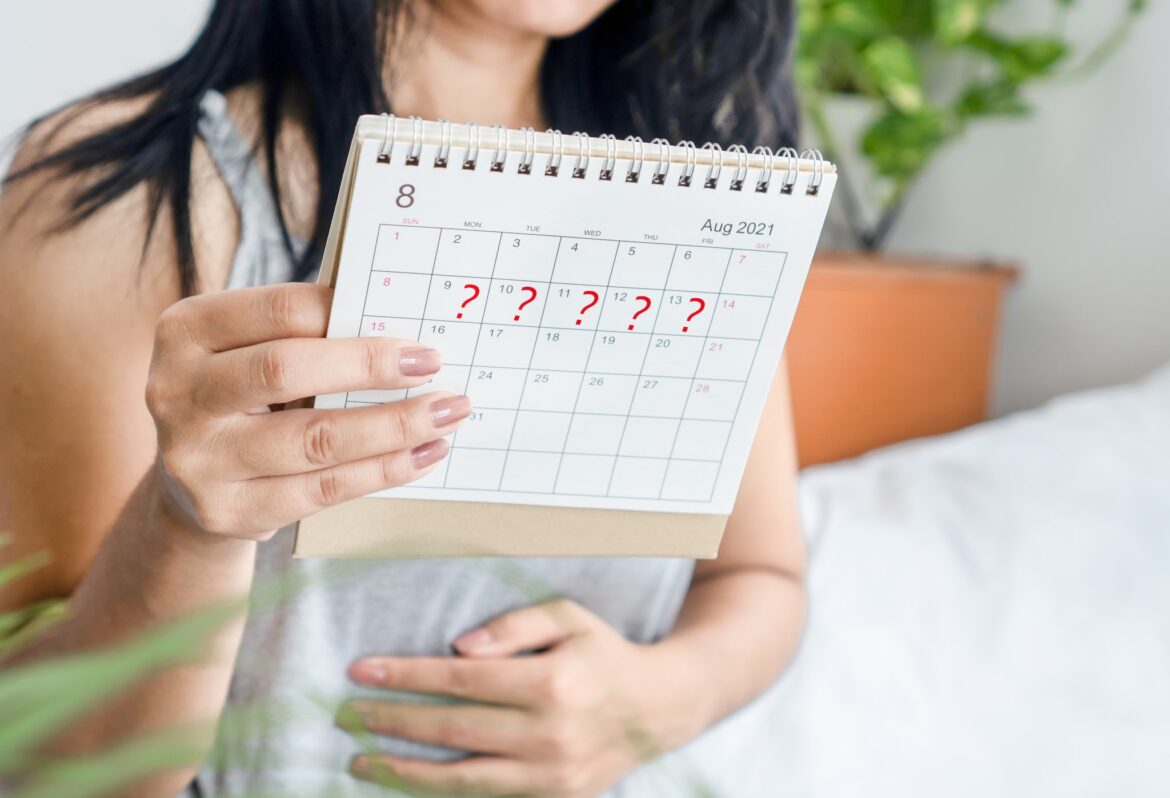Ever wondered why periods are irregular for some people? Here is the answer you need. Menstrual cycles are usually counted from the 1st day of your period to the next one. The cycle is of 28 days, but again this can vary from time to time.
If your periods occur between 24-38 days, then they are still considered regular, but that too is under constant change, then, it is time to reconsider your habits or consult a doctor. To know why periods are irregular, their symptoms, and their remedies, keep reading this post!
Irregular periods symptoms
Diabetes
If you experience uncontrolled diabetes, chances are that you are experiencing irregular periods because of the interaction between hormones and blood sugar levels.
Eating Disorders
If you have bulimia or anorexia, chances are that you will experience missed or irregular periods. This happens when your body isn’t able to produce or circulate hormones that will manage your cycle.
Hyperprolactinemia
Women with an abundance of prolactin (protein hormones in their bodies) tend to experience irregular periods quite often.
Medications
This includes a few medications such as antiepileptics, medications, antipsychotics, etc. This also causes irregular periods often.
PCOS
This happens when there is a general imbalance in sex hormones. It can also disrupt the regular flow of menstruation as well.
Premature Ovarian Failure
This happens when the woman’s ovaries stop functioning before she hits 40. But there are a few women who experience occasional periods even after all that.
Stress
Often stress tends to delay periods by a couple of days. But if your period has been delayed, then you can entirely skip it.
Types of abnormal menstruation
Contrary to what people believe, there are no 8 types of abnormal menstruation. There are 5 types that have been described below:
- Dysmenorrhea: This refers to cramps that are extremely painful during the menstruation phase.
- Premenstrual syndrome: This includes psychological and physical symptoms
- Menorrhagia: This is a form of heavy bleeding which includes bleeding for a long period of time or even excessive bleeding at certain lengths.
- Metrorrhagia: This includes bleeding during random intervals. It could also be expected between certain menstrual stages.
- Amenorrhea is described as the absence of menstruation too.
- Oligomenorrhea: This is also referred to as menstrual periods during infrequent stages. It is also called light periods.
How to get regular periods naturally?
Exercise
Exercise offers multiple health benefits that could help regulate your periods. Not just that, it will help you maintain a healthy weight. Clinical trials conducted recently have also suggested that people who exercise on a day-to-day basis are able to experience normal periods.
Cinnamon
Cinnamon, again is a great treatment option if you are losing your period on time. Studies have shown from time to time that cinnamon can relieve nausea and vomiting. It is also an effective and safe treatment method for women who have dysmenorrhea.
Pineapple
Pineapples are an excellent home remedy if you are really trying to regulate your periods. They contain pain-relieving and anti-inflammatory periods that will alleviate not just menstrual cramps but also ensure good health for you in the long run.
Drink ACV
Drinking apple cider vinegar on a regular basis is a great way to regulate your periods. Research has also shown that while it could be a bit difficult for a few people to consume, it definitely can be diluted with some honey and water to enhance the taste. Either way, it is an excellent remedy for regular periods and is highly recommended as an effective treatment option.
Common FAQs
Why is my menstrual cycle getting longer?
Our periods often get longer because of multiple reasons. Sometimes it is a result of hormone medications that tamper with our cycle. Sometimes is an excess production of estrogen that leads us to menopause, and sometimes, its medical conditions like endometriosis, pelvic inflammatory diseases, blood disorders, cancers, etc.
How to cure irregular periods in teenage girls?
If you are wondering why periods are irregular for teenage girls, here is the answer: hormones. Sometimes teenagers tend to stress a lot or experiment with unhealthy diets that disrupt their menstrual cycle and cause delayed periods. The best way to sort this out is by adopting a healthier lifestyle that includes good eating habits, regular workouts, meditation that lowers stress levels, etc.
What causes the menstrual cycle to change dates every month?
Menstrual cycles are usually affected by the ups and downs of our hormones alongside any physical changes we experience. This tends to trigger follicle growth, releases eggs, sheds uterine linings, and cause periods. The hormones also include progesterone, luteinizing hormone, stimulating hormone, testosterone, etc.
What are the causes of regular periods in your 20s?
In order to get regular periods in your 20s, it is important to be mindful of your everyday habits. This means you should avoid high-fiber diets, eat more papaya and pineapples, and have food that includes a touch of turmeric, ginger, and turmeric. They are the best ways to trigger your periods on time and ensure good health for you as well.
What are the effects of irregular periods on the body?
Irregular periods can have huge effects on your body. There will be fluctuations in the flow. There might be clots on your pad. Sometimes people also experience spotting and pain or even headaches as a result of irregular periods. Also, make sure that you take note of any drastic changes that occur. Speak to your doctor in case there are any sudden changes during the period too.
Now that you have understood why periods are regular make sure to use the tips and tricks and incorporate them into daily life. Ideally, with a few changes here and there, you should be able to get your life back to track. But if you are unable to do so, make sure to schedule an appointment with a gynecologist. They will definitely be able to shed more light and tell you why periods are irregular for you.




